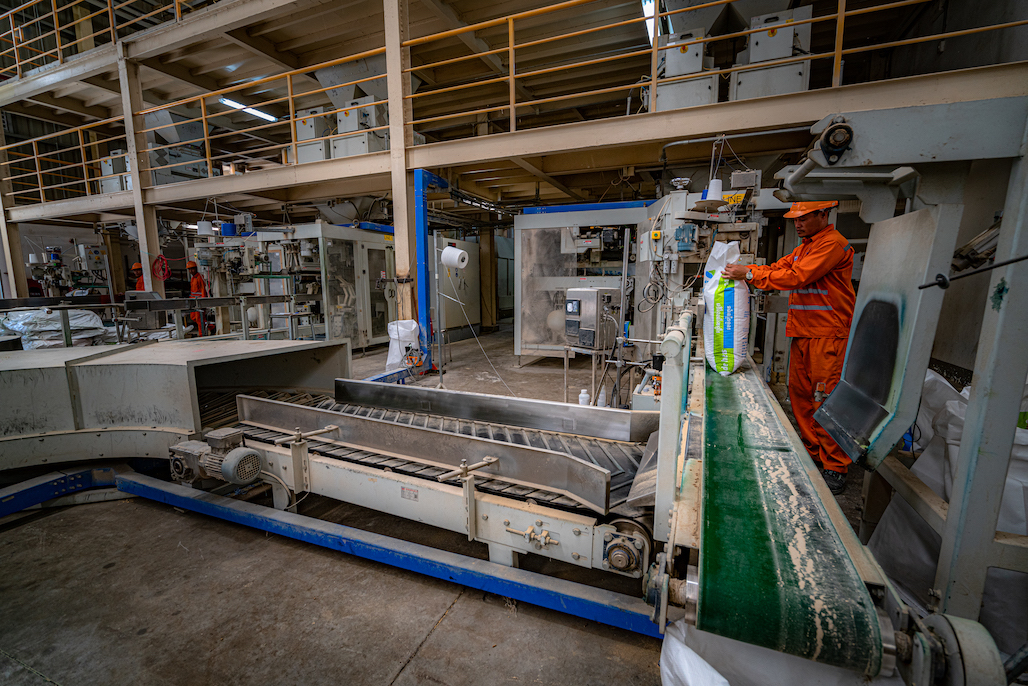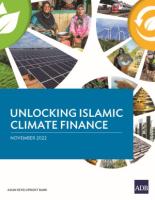
To avoid the impact of global headwinds on the environment, society, and business operations, CEOs are leveraging innovations and partnerships to deliver results. Photo credit: ADB.
Companies globally are deploying innovations and partnerships to deliver results, according to largest CEO survey.
Faced with global headwinds, business leaders now believe building resilience and incorporating sustainability into their operations are vital to get the Sustainable Development Goals (SDGs) back on track, says a new study that polled more than 2,600 chief executive officers (CEOs) across 128 countries.
The 12th UN Global Compact-Accenture CEO Study: Reimagining the Agenda: Unlocking the Global Pathways to Resilience, Growth and Sustainability for 2030 found that 93% of respondents contend with 10 or more simultaneous challenges to their businesses, while about 87% warned that current levels of disruption will limit delivery of the SDGs.
With less than 10 years to meet the SDGs, 43% of respondents said the geopolitical environment has constrained their sustainability efforts. In developing countries, the number is higher at 51%.
With 98% agreeing that sustainability is core to their role, CEOs are taking action to avoid the impact of global headwinds on the environment, society, and business growth. They are leveraging innovations and partnerships to deliver results.
The study is the largest-ever sampling of executives, including the biggest group of CEOs from the Global South, since the start of the CEO study report in 2007. The latest report provides insights from CEOs in 18 industries and over 130 in-depth interviews.
Dealing with multiple shocks
Respondents said the setbacks they are facing include the lingering impact of the pandemic, fallout from geopolitical uncertainty, supply-chain disruptions, inequality, and climate change.
“In a world categorized by conflict, energy shortages, rising inflation, and the threat of recession, this year’s study shows CEOs do not believe the world is as resilient to crises as we may have hoped,” said UN Global Compact Executive Director and CEO Sanda Ojiambo in a news release. UN Global Compact is a voluntary initiative to encourage businesses worldwide to adopt sustainable and socially responsible policies.
She said businesses continue to be impacted by multiple shocks. “As a result, on a broad range of issues, from runaway climate change to widening social and economic inequalities, business action right now does not match the ambition and pace needed to achieve the Sustainable Development Goals by 2030.”
In reviewing the world’s largest companies’ net-zero targets, the report also found that nearly all will miss their own targets unless they double the rate of reducing carbon emissions by 2030.
What businesses are doing
About 66% of the CEOs are building resilience by engaging in long-term strategic partnerships, reconfiguring supply chains, reskilling employees, and reassessing their relationship with natural resources, among others. Some are also establishing science-based climate targets, investing in their workforce’s diversity, engaging in cross-industry partnerships on technology solutions, enhancing supply chain visibility, and advancing greater biodiversity.
For instance, American pharmaceutical company Bristol Myers Squibb is addressing inequity in healthcare by providing equitable access to medicines. In 2021, it successfully located 54% of its clinical trial sites in highly diverse communities across the United States. Its independent charitable arm started a program to train at least 250 clinical trial investigators who are diverse and/or committed to increasing diversity in clinical trials in partnership with the Virginia Commonwealth University and the American Association for Cancer Research.
In terms of supply-chain resilience, ADM, a multinational food processing company, is a successful case study. ADM ensures the resilience of its supply chain by establishing multiple transport options, allowing it to transport shipments via barge, rail cars, and trucks. Having such redundancies allows the company to have an agile supply chain that can pivot instantaneously.
Another example is Swiss consulting firm Kaizen Institute, which is piloting a 4-day work week across its offices in the United Kingdom, France, Portugal and Spain to increase employee retention and productivity. Under the program, employees are also given the leeway to help small startups that have received investments from Kaizen Institute. This program showcases new ways companies can engage with their workforce and build business resilience.
Executives are also looking at technology to address global challenges and drive growth. About 63% of CEOs embed sustainability into their businesses by launching new products and services for sustainability, 55% enhance sustainability data collection across their value chains, and 49% invest in renewable energy sources. About half of the respondents are also transitioning to circular business models, while 40% are increasing R&D funding for sustainable innovation.
Danish multinational pharmaceutical company Novo Nordisk, for instance, is embedding an end-to-end responsible business model by considering healthcare’s sustainability impacts across different stages of the product lifecycle. To reduce medical device waste, the company is piloting a model for a cross-industry “take back” program in a range of countries, with the goal of reusing components, such as glass, plastics, and metals from injection pens after disposal by patients.
“New waves of technology investments and breakthrough innovation can put the SDGs back within reach—but only if leaders turn to sustainability for resilience to help create new markets, products, and services that can correct the current trajectory and drive growth amid times of disruption,” said Peter Lacy, Accenture’s global sustainability services lead and chief responsibility officer.
Governments also have a role to play
To meet sustainability targets, The report said businesses are also asking governments to provide clear direction and support to the private sector.
The CEOs have identified 10 critical policy actions:
- Align nationally determined contributions at 1.5°C.
- Cooperate on carbon pricing.
- Realize a biodiversity framework.
- Act on adaptation financing.
- Align regulatory systems to foster innovation.
- Standardize environmental, social, and governance norms in reporting frameworks.
- Enable the circular economy.
- Invest in sustainable basic infrastructure.
- Support policy for a just transition.
- Provide education and financing for small and medium-sized enterprises.
“Despite setbacks, there is room for hope. The CEOs we surveyed increasingly recognize they can build credibility and brand value by committing to the Ten Principles and the Sustainable Development Goals throughout their operations—not only because it’s the right thing to do, but also because it is good business sense,” said Ojiambo.
This article was first published by BIMP-EAGA on 14 April 2023.

BIMP-EAGA
The Brunei Darussalam–Indonesia–Malaysia–Philippines East ASEAN Growth Area, or BIMP-EAGA, is a cooperation initiative established in 1994 to spur development in remote and less developed areas in the four participating Southeast Asian countries.


